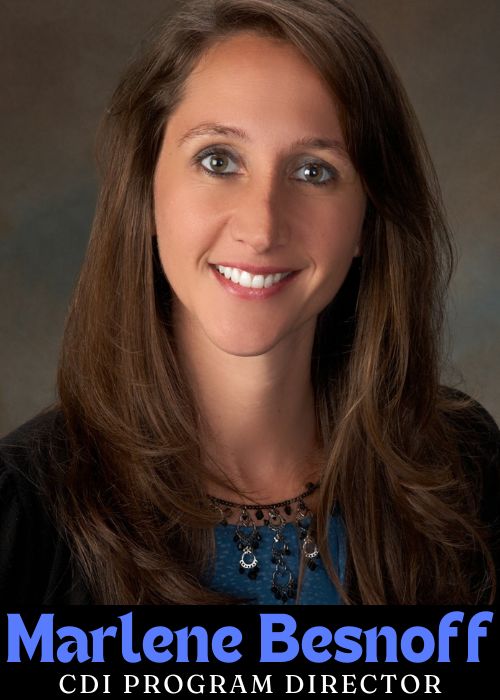Artificial Intelligence (AI) Helps to Tell a More Accurate Patient Story
By Dr. Sowmya Viswanathan, Chief Physician Executive, Marlene Besnoff, CDI Program Director and Dr. Laura Arline, Chief Quality Officer, BayCare Health System
In recent years, the healthcare industry has witnessed significant advancements in technology, particularly in the field of AI. AI is revolutionizing all aspects of healthcare, including Clinical Documentation Integrity (CDI). CDI programs play a critical role in ensuring accurate and comprehensive clinical documentation, which is essential for optimal patient care and reimbursement. By leveraging AI, CDI programs can enhance their effectiveness and efficiency.

BayCare CDI Program Director, Marlene Besnoff explains, “The skills of our CDI specialists, combined with AI technology, is the future of medical record integrity. This partnership is key to capturing accurate and complete documentation, which describes the outstanding care delivered by the healthcare team and tells the correct patients’ stories as they move through the healthcare system.”
A patient’s healthcare story is told in two languages: 1) clinical chart documentation and 2) the codes submitted on claims to payers based on this documentation. CDI Specialists translate the chart documentation into billing codes and may clarify imprecise and incomplete physician/advanced practice provider (APP) clinical documentation. The role of CDI programs is to ensure the correct translation of this clinical documentation into coding language that reflects the patient’s severity of illness and the complexity of care provided. Telling the patient’s story in both languages is critical to high-quality outcomes, patient safety, and care team coordination.

AI can streamline and augment the work of CDI specialists, making the process more efficient, as technology combs through data much quicker than humans. One of the key challenges faced by CDI programs is the manual review of patient records to identify documentation gaps. This process can be time-consuming and is very detail-oriented. Through natural language processing (NLP) technology, large volumes of unstructured data (such as clinical notes) are analyzed, and relevant information is abstracted. Some mature AI programs examine more than 30,000 data points per chart to arrive at suggested differential diagnoses based on notes, labs, medications, orders, vital signs, imaging, and other studies. These algorithms can identify missing diagnoses, clarify ambiguous or conflicting terms, and suggest appropriate documentation based on the comprehensive data in the patient’s chart.
AI has already started to revolutionize the field of CDI and continues to develop. By leveraging AI-powered tools, CDI programs will continue to streamline and augment their work.
Many AI-powered CDI tools allow for real-time feedback to physicians and other healthcare professionals. CAPD (computer-assisted physician documentation) AI tools analyze the clinical data entered by physicians and other healthcare professionals and nudge them to consider potential documentation inconsistencies. By providing immediate feedback, AI-enabled CDI tools can help improve documentation quality at the point of care, leading to more accurate and comprehensive patient records. This, in turn, leads to enhanced communication within the interdisciplinary team for safer patient care.
Another area where AI supports CDI programs is prioritization of charts for review. AI software can be customized to prioritize the CDI team’s review, scanning the record content ahead of time and triaging charts with the most opportunity. Healthcare organizations can choose their level of priority and focus of reviews based on patient population, specific diagnoses, procedures, or other relevant data elements. AI algorithms flag clinical conditions that may have been missed or under-documented and prompt CDI specialists to investigate further.
AI can also play a significant role in predicting and preventing documentation-related concerns. By analyzing historical data and patterns, AI algorithms can identify documentation trends such as coding errors and missing documentation. CDI programs can use this information to proactively educate healthcare professionals, implement targeted interventions, and develop strategies to mitigate documentation-related concerns. This proactive approach can help prevent adverse patient outcomes and financial losses.
AI is still not human – While AI offers tremendous potential to CDI programs, it is important to recognize that it is not meant to replace human expertise. Rather, AI should be seen as a powerful tool that complements and enhances the work of CDI specialists. Many CDI specialists are nurses with years of experience and clinical judgment, and they play a critical role in the interpretation and validation of clinical information. Critical thinking skills are essential in determining whether the information set forth by the computer is appropriate and fitting the patient’s description of their condition. AI can assist in automating certain tasks, providing real-time nudges and feedback, extracting relevant information from copious amounts of data, and identifying potential issues, but the trained eyes of the CDI Specialists lead to the decision towards optimization of the documentation.
AI has already started to revolutionize the field of CDI and continues to develop. By leveraging AI-powered tools, CDI programs will continue to streamline and augment their work. The impact of capturing accurate language for diagnoses and patient conditions in the health record ensures all clinicians, patients and their families understand the care rendered. The partnership of our CDI teams with evolving AI technology leads the path to higher quality care, patient safety, and improved financial performance. From automating data extraction and analysis, to providing real-time feedback to healthcare professionals, AI offers numerous benefits to CDI programs. However, it is important to remember that AI is a tool, and human expertise and judgment are indispensable in ensuring accurate and comprehensive clinical documentation. Our patients are unique, and the documentation published in their medical record tells their story. By harnessing the power of AI while leveraging the skills of CDI specialists, healthcare organizations can achieve optimal CDI and better depict patient care.



